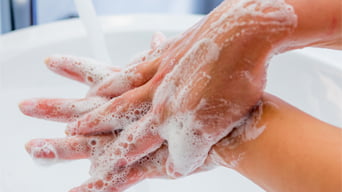Liv’ED It is an ED original style where we write about our personal experiences on experiencing and reviewing any app/place/website/experience which gives us a feeling of coming back for more.
“I’m just like Monica from Friends. I’m so OCD.”
“I love keeping my room clean. Everyone says I’ve got OCD.”
Breaking news: that’s not OCD.
A love for cleanliness is a conscious decision, whereas if you have OCD, it’s like having an itch you cannot scratch, which sometimes goes out of control.
As someone who has had OCD since the age of 10, I can tell you what it’s like to REALLY be OCD. I can assure you, it’s not cute or funny.
How It Happened
OCD can happen for a variety of reasons- due to a family history of the same, as a reaction to stress, as a coping mechanism, or all of the above. It could also be totally random, without any specific cause. It is usually linked with anxiety or depression.
Scientific Reasons
The doctor I have been consulting says that whatever may be the trigger, OCD happens because a certain chemical is being secreted in the brain, and so medicines are needed to regulate the same.
How It Feels
In the early years, till I was about 17, my OCD was pretty much crippling. I would take a long time to perform simple activities like washing my hands or taking a bath, because I had a gnawing feeling that if I didn’t perform a certain activity a certain number of times, something bad would happen to me.
I lived in constant fear of my own thoughts- OCD does not manifest solely through performing activities physically.
It can also be seen in having the same thought repeatedly, dwelling on illogical fears, and having high anxiety levels and consequently, no peace of mind.
Read More: LivED It: I Tried Prawn Cocktail At The Oldest Fine Dining Restaurant In Kolkata
Medication
I was taken to a doctor at the age of 16, and was prescribed medication to deal with the OCD. It took 6 years to seek help because of the stigma associated with mental health and seeing a doctor for the same- my father always said it’s just in my head and I need to “think positive.” Six years of attempting to think positive and I still wasn’t any better.
The treatment given to me was threefold: counselling, medication, and relaxation therapy. Counselling is essential to understand that you’re not alone, and to learn to cope and regulate your thoughts and fears.
Relaxation therapy soothes the patient, which consequently helps with anxiety. Medication regulates the chemicals in the brain, and reduces the imbalance
The Results
The first day I took the medication I didn’t sleep a wink. I proceeded to be hyperactive throughout the next day as well.
However, the strong dosage eventually began to knock me out-it took about a week to adjust, as the tablets used to have a sedative effect in large doses (probably to counter the anxiety).
After years of treatment, I’m happy to say that my OCD is very much under control. I’m 23 now, and at a stage where I can soon handle it without medicines.
Bottomline
OCD is not something you can be 100% free of… The intrusive thoughts will return during times of extra stress or emotional upheaval. The important thing is to remember everything you’ve learnt during therapy and counselling, and not undo your progress.
It’s a back and forth journey, not a straight upward line. At times you’ll feel like you’ll never be free of the cage that your mind is in. But I can assure you, the best way to deal with such situations is to not be too hard on yourself.
Don’t push your mind too far too fast. That will just aggravate the anxiety. Be kind to yourself, and take baby steps towards ultimately being able to discern which thoughts are just intrusive thoughts created by the illness, and not allowing them to disturb you.
Image Credits: Google Images
Sources: Author’s Experience
More Recommendations:
BTS WORLD Is Out, Here Is The First Look Of The Game: We LivED It



































